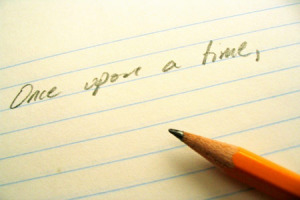 I am a social media experiment. No, Mark Zuckerberg hasn’t plastered electrodes to my head to test my brainwaves while I look at adorable, spelling-deficient baby animals on Facebook, although his calls are getting more insistent and frankly, a little disturbing. I think somewhere in the depths of his underground California lair, he’s training newborn badgers to sing Justin Bieber tunes. But I could be wrong. Since I read it on Wikipedia. Continue reading “An Experiment of One…Hundred Thousand”
I am a social media experiment. No, Mark Zuckerberg hasn’t plastered electrodes to my head to test my brainwaves while I look at adorable, spelling-deficient baby animals on Facebook, although his calls are getting more insistent and frankly, a little disturbing. I think somewhere in the depths of his underground California lair, he’s training newborn badgers to sing Justin Bieber tunes. But I could be wrong. Since I read it on Wikipedia. Continue reading “An Experiment of One…Hundred Thousand”
Author: Laurie Boris
Are You Pro Prologues? (Baby Got Backstory, Part II)
 Last week we talked about backstory, how much is too much and nifty ways to use it. What about a prologue? Should you have one? Is it a great way to lay down a lot of background up front? Or will readers just buzz past it to get to Chapter One? Does all that backstory make my butt look big? No. Don’t answer that one.
Last week we talked about backstory, how much is too much and nifty ways to use it. What about a prologue? Should you have one? Is it a great way to lay down a lot of background up front? Or will readers just buzz past it to get to Chapter One? Does all that backstory make my butt look big? No. Don’t answer that one.
However, there is no right or wrong answer about prologues. There is only Elmore Leonard and he is to blame. Well, not really. But that’s what happens when a popular author does something relatively bold – starts in the meat of the action and is successful at it – that gets writers thinking they have to do the same thing and readers thinking that most stories should start in the middle of a hostage situation. Continue reading “Are You Pro Prologues? (Baby Got Backstory, Part II)”
Baby Got Backstory (Part 1)
 Backstory presents a challenge to a lot of writers. Not the writing of it. We’re pretty good at that. We can dream up plenty of history about the guy down the street who likes to wear pink, patent leather go-go boots to water his azaleas. Trouble is, some writers don’t know when to stop, or where and how to work it into the story.
Backstory presents a challenge to a lot of writers. Not the writing of it. We’re pretty good at that. We can dream up plenty of history about the guy down the street who likes to wear pink, patent leather go-go boots to water his azaleas. Trouble is, some writers don’t know when to stop, or where and how to work it into the story.
There are no hard and fast rules about backstory; like most things in writing, it depends. Readers need to know enough to become invested in the story, but not so much that they get distracted from the action. Some genres need more than others. If you build worlds from scratch, you probably need to provide more explanation than those of us who set their stories on Earth as we know it. You may need to tell the reader that there are two suns, six moons, and seven species of sentient beings on your fictional planet because the rest of the universe exploded, leaving only these survivors, who all speak different languages and would hate each other even if they could communicate. Readers of fantasy and science fiction probably expect a certain amount of backstory.
In other types of fiction, particularly contemporary, less is more, and in all types, how you use it matters. Continue reading “Baby Got Backstory (Part 1)”
Feeling a Bit Wobbly?
 Tell someone you’re writing a book and you can expect a few stock responses. On a good day, initial excitement tops the list. This is often followed by a remark that he or she could write a whiz-bang bestseller but doesn’t have the time (as if that’s all it takes). Or you might be told to move along because you’re blocking the drive-through window. What I hear frequently is some variation on, “Boy, rough business. You need a really thick skin to do that.” Continue reading “Feeling a Bit Wobbly?”
Tell someone you’re writing a book and you can expect a few stock responses. On a good day, initial excitement tops the list. This is often followed by a remark that he or she could write a whiz-bang bestseller but doesn’t have the time (as if that’s all it takes). Or you might be told to move along because you’re blocking the drive-through window. What I hear frequently is some variation on, “Boy, rough business. You need a really thick skin to do that.” Continue reading “Feeling a Bit Wobbly?”


